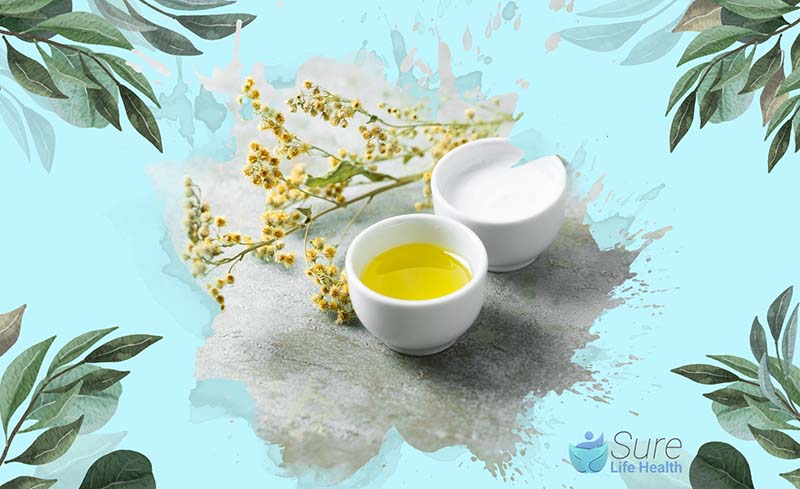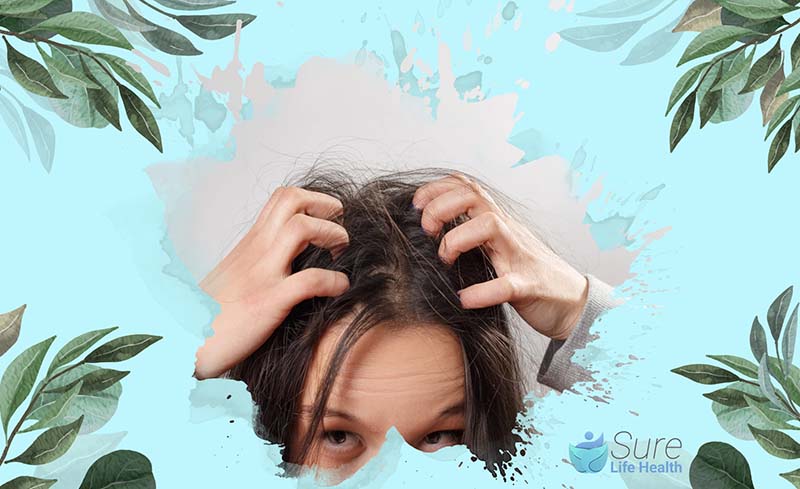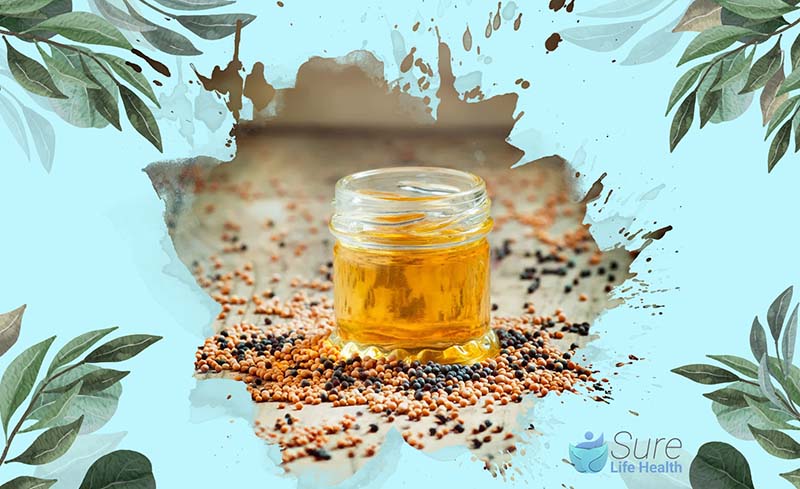Hair oil is essential for maintaining healthy, vibrant hair, especially when it comes to revitalizing damaged and dull locks. Many people often ask, “Is mustard oil good for hair?” The answer is a resounding yes. Mustard oil, known as ‘sarson’ in Indian households, stands out as an exceptional choice for hair care.
Incorporating mustard hair oil into your regular routine can work wonders. It not only boosts hair growth but also tackles common issues like dandruff and hair thinning. Discover the incredible benefits of mustard oil for hair and experience the transformation in your hair health firsthand.
Is Mustard Oil Good for Hair?
While mustard oil is widely recognized for its potential health benefits, especially for cardiovascular health and reducing inflammation, there have been limited clinical studies on its benefits for hair health. Most existing research has been conducted in vitro, meaning on cell cultures in a lab rather than on real people. These studies often use higher concentrations of mustard oil than what is typically used in personal care products, which can affect the perceived effectiveness on human hair and scalp.
Despite the lack of extensive clinical evidence, several beneficial properties for hair care are attributed to the natural components of mustard oil. These benefits, derived from its rich composition, include:
- Antioxidant properties: Mustard oil is a source of Vitamins A and E, along with antioxidant amino acids like cysteine, which can help protect hair cells from oxidative stress.
- Hair conditioning and hydration: It contains alpha-linoleic acid, a fatty acid that nourishes and hydrates the hair.
- UV protection and anti-aging effects: The vitamin E in mustard oil can shield hair from harmful UV rays and help prevent premature aging.

Note: While these properties suggest potential hair care benefits, it’s important to approach mustard oil use with care due to the lack of concrete evidence on its effectiveness and proper application parameters.
Benefits of Mustard Oil for Hair
Provides Antibacterial and Antifungal Benefits
Mustard oil, rich in alpha-linolenic acid (ALA) and high uric acid levels, can effectively cleanse the scalp by eliminating fungi and bacteria that block hair follicles.
Contains Strong Antioxidant Properties
Rich in antioxidants like vitamin E, mustard oil helps combat oxidative stress, protecting both the scalp and hair from environmental damage.
Reduces Scalp Inflammation
Mustard oil is laden with beneficial fatty acids such as omega-3s and omega-6s, along with minerals like calcium, iron, and zinc.
These nutrients nourish the scalp and act as anti-inflammatories, according to Jennifer Chwalek, MD, a board-certified dermatologist at Union Square Laser Dermatology in New York City.

Eliminates Mites
William Gaunitz, a certified trichologist and founder of the Gaunitz Trichology Method, notes that mustard oil may combat hair loss caused by demodex folliculorum, a parasite.
However, he advises using ground mustard powder instead of oil, as these mites feed on oils, which could exacerbate the issue.
Improves the Overall Look and Feel of Hair
Mustard oil protects hair from daily damage. It fills gaps between cuticle cells, reducing the effects of surfactants. This results in shinier hair and smoother split ends.

Supports Hair Growth
Packed with vitamins E, K, and A, and minerals like iron and magnesium, mustard oil not only promotes hair growth but also helps prevent premature greying due to its antioxidant properties and zinc beta-carotene content.
Note: Despite these benefits, it’s crucial to use mustard oil with caution. Conduct a patch test before full application to ensure there is no adverse reaction on your skin.
Effective Instructions for Using Mustard Oil on Hair
- Mustard Oil and Yogurt Pack Create a nourishing hair pack by mixing yogurt with mustard oil in a bowl. Apply this creamy blend to your scalp, then wrap your hair in a hot towel to enhance absorption. Leave it on for about 30-40 minutes before washing it out with a mild shampoo. This treatment deeply moisturizes the scalp, leaving your hair shiny and soft.
- Mustard Oil and Aloe Vera Pack Combine mustard oil with aloe vera gel in a bowl for a soothing hair treatment. Apply the mixture to your hair and scalp and let it sit for an hour. Rinse it off using your regular shampoo and conditioner. This pack is especially beneficial for preventing hair loss.
- Mustard Oil and Lemon Juice Pack In a bowl, mix equal parts of mustard oil, lemon juice, and fenugreek powder. Apply this mixture to your hair thoroughly. After letting it sit for an hour, wash your hair to achieve soft, bouncy, and healthy locks.

- Mustard Oil and Banana Pack Mash a ripe banana and mix it with mustard oil to form a paste. Add some yogurt if needed to adjust the consistency. Apply this pack to your scalp, focusing on areas prone to dryness. This treatment is excellent for hydrating and nourishing the scalp.
Note: Always check the temperature of any heated treatment to prevent scalp burns and ensure that the ingredients are fresh to avoid irritation or allergic reactions.
What Oils Can Be Combined with Mustard Oil to Promote Hair Growth?
If you’re exploring natural remedies for combating hair loss, several essential oils are known for promoting hair growth. You can also refer to our list of the best and worst hair oils for growth.
It’s important to note that more research is needed to confirm the hair-restoring properties of these oils. Additionally, there are no studies indicating that mixing them with mustard oil improves their effectiveness:
- Rosemary oil.
- Black seed oil.
- Tee tree oil.
- Saw palmetto oil.
- Pumpkin seed oil.
- Pepper mint oil.
Potential Side Effects of Mustard Oil on Hair
While the external application of mustard oil is generally safe and side effect-free for most individuals, there are certain compounds within the oil, such as allyl thiocyanate, erucic acid, and capsaicin, that can potentially cause mild irritation, especially for those with sensitive scalps.
In uncommon instances, mustard oil might clog the roots of hair follicles or cause irritation to the eyes if accidentally contacted. To ensure safety and avoid adverse reactions, it is crucial to perform a patch test before using mustard oil extensively. Apply a small amount to your skin, ideally on the inner arm or behind the ear, and monitor for any signs of allergic reactions like rashes, itching, or swelling.

Conclusion
The potential of mustard oil for hair health is intriguing, but it’s important to be realistic about its limitations. For those struggling with significant hair loss, thinning, or persistent scalp issues, mustard oil’s benefits for hair growth and scalp health might be secondary to addressing the underlying cause.
Consulting a healthcare professional can understand the root of these problems and pave the way for effective treatment. In essence, maximizing the true benefits of mustard oil for hair often hinges on first tackling any underlying health concerns.
Don’t miss the opportunity to explore further insightful content from SurelifeHealth.
Professor Gaye Cunnane, PhD, MB, FRCPI
As the Director of Health and Wellbeing at RCPI, Professor Gaye Cunnane is at the helm of initiatives aimed at enhancing the health and well-being of RCPI Trainers and Trainees. Her role extends beyond administration; she is also a respected clinical professor of rheumatology and a consultant rheumatologist at Trinity College Dublin (TCD) and St James’s Hospital. Prof. Cunnane’s medical journey began at TCD, where she graduated from medical school, and her path has been marked by both clinical and academic excellence.
After completing her basic clinical training in medicine, she embarked on PhD studies at University College Dublin and St Vincent’s University Hospital. Her research during this period was focused on prognostic markers in early inflammatory arthritis, a project that saw her collaborating with esteemed universities across Europe, including in Switzerland, The Netherlands, the UK, and Sweden.
Prof. Cunnane’s career took her to the University of California, San Francisco, where she spent three years delving into research on new treatments for lupus. Her academic prowess led her to the University of Leeds in 2001 as a senior lecturer, before returning to Ireland in 2003 to assume her current roles. She has also served as the National Specialty Director for Rheumatology training in Ireland, Programme Director for Basic Specialist Training with RCPI, and as a past President of the Irish Society for Rheumatology.
PUBLISHED ARTICLES
“Rheumatic disease differentiation using immunoglobulin G sugar printing by high-density electrophoresis”: Published in The Journal of Rheumatology, this study reflects her in-depth investigation into rheumatic diseases.
“Benefits of exercise in patients with rheumatoid arthritis: a randomized controlled trial”: This research work, highlighting the positive impact of exercise on rheumatoid arthritis, underscores Prof. Cunnane’s dedication to practical, patient-centered research.
Additionally, Prof. Cunnane has made notable contributions to the Annals of the Rheumatic Diseases, discussing early referral, diagnosis, and treatment of rheumatoid arthritis. She has also been involved in a study on the NCBI platform investigating exercise benefits in rheumatoid arthritis patients.
Professor Gaye Cunnane’s career is a testament to her commitment to improving patient outcomes in rheumatology through rigorous research, clinical excellence, and dedicated teaching. Her work continues to influence the field of rheumatology, both in Ireland and internationally.

